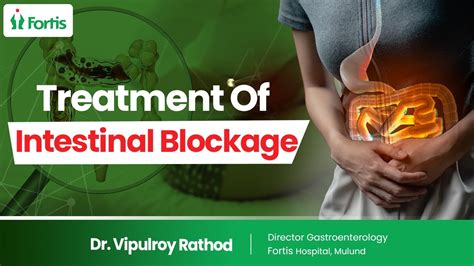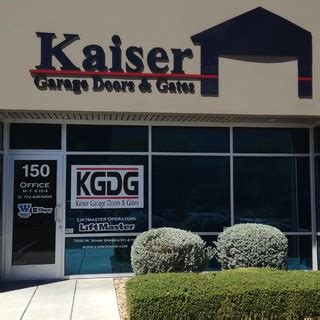Intestinal Blockage Treatment

Intestinal blockages, also known as bowel obstructions, occur when there is a partial or complete blockage of the small or large intestine. This can prevent normal flow of food, fluids, and gas, causing severe abdominal pain, vomiting, constipation, and other complications. The treatment for intestinal blockage depends on the severity and cause of the blockage, as well as the overall health of the patient.
Causes of Intestinal Blockage
Intestinal blockages can be caused by a variety of factors, including:
- Adhesions or scar tissue from previous surgeries
- Hernias
- Inflammatory bowel disease (IBD) such as Crohn’s disease or ulcerative colitis
- Tumors or cancers
- Intussusception (telescoping of the intestine)
- Volvulus (twisting of the intestine)
- Foreign bodies or objects
Symptoms of Intestinal Blockage
The symptoms of intestinal blockage can vary depending on the location and severity of the blockage, but may include:
- Severe abdominal pain or cramping
- Vomiting, especially if the blockage is in the small intestine
- Constipation or inability to pass gas
- Abdominal swelling or bloating
- Fever
- Nausea and loss of appetite
Diagnosis of Intestinal Blockage
Diagnosing an intestinal blockage typically involves a combination of physical examination, medical history, and imaging tests such as:
- X-rays to show the location and extent of the blockage
- Computed tomography (CT) scans to provide more detailed images
- Magnetic resonance imaging (MRI) scans to evaluate the intestine and surrounding tissues
- Ultrasound to assess for hernias or other abnormalities
Treatment Options for Intestinal Blockage
Treatment for intestinal blockage depends on the cause and severity of the blockage, as well as the overall health of the patient. Mild blockages may be treated with:
- Conservative management: This involves resting the bowel, administering fluids and electrolytes, and managing pain and discomfort.
- Endoscopic procedures: A flexible tube with a camera and light on the end (endoscope) may be used to visualize the blockage and potentially remove any obstructing material.
More severe blockages may require:
- Surgery: To remove the blockage, repair any damaged tissue, and restore normal bowel function.
- Bowel resection: In some cases, a portion of the intestine may need to be removed and the remaining ends reconnected.
Complications of Intestinal Blockage
If left untreated, intestinal blockages can lead to serious complications, including:
- Tissue death: Prolonged lack of blood flow to the intestine can cause tissue death, leading to infection and further complications.
- Perforation: The intestine can rupture, allowing bacteria and other substances to leak into the abdominal cavity and cause infection.
- Malnutrition: Prolonged bowel obstruction can lead to malnutrition and dehydration.
Prevention of Intestinal Blockage
While not all intestinal blockages can be prevented, certain measures can reduce the risk:
- Maintain a healthy diet: Eating a balanced diet rich in fiber can help prevent constipation and reduce the risk of bowel obstruction.
- Stay hydrated: Drinking plenty of water can help prevent dehydration and reduce the risk of bowel obstruction.
- Exercise regularly: Regular physical activity can help stimulate bowel function and reduce the risk of constipation.
Step-by-Step Guide to Managing Intestinal Blockage
For patients experiencing intestinal blockage, the following steps can help manage symptoms and prevent complications:
- Seek medical attention: If symptoms of intestinal blockage occur, seek medical attention immediately.
- Follow treatment plans: Work closely with healthcare providers to develop and follow a treatment plan, which may include conservative management, endoscopic procedures, or surgery.
- Maintain a healthy lifestyle: Eat a balanced diet, stay hydrated, and exercise regularly to help prevent constipation and reduce the risk of bowel obstruction.
- Monitor symptoms: Keep track of symptoms and report any changes or worsening of symptoms to healthcare providers.
What are the symptoms of intestinal blockage?
+Symptoms of intestinal blockage can include severe abdominal pain or cramping, vomiting, constipation or inability to pass gas, abdominal swelling or bloating, fever, and nausea and loss of appetite.
How is intestinal blockage diagnosed?
+Diagnosing an intestinal blockage typically involves a combination of physical examination, medical history, and imaging tests such as X-rays, CT scans, MRI scans, and ultrasound.
What are the treatment options for intestinal blockage?
+Treatment options for intestinal blockage depend on the cause and severity of the blockage, as well as the overall health of the patient, and may include conservative management, endoscopic procedures, or surgery.
Can intestinal blockage be prevented?
+While not all intestinal blockages can be prevented, certain measures can reduce the risk, such as maintaining a healthy diet, staying hydrated, and exercising regularly.
Advanced Treatment Options
For patients with severe or recurrent intestinal blockages, advanced treatment options may be necessary, including:
- Intestinal stenting: A minimally invasive procedure where a stent is placed to open up the blocked area.
- Bowel bypass surgery: A surgical procedure where the blocked portion of the intestine is bypassed, allowing food and waste to pass through a healthy section of the intestine.
- Intestinal transplant: In severe cases, a transplant of the small intestine may be necessary.
It’s essential to work closely with healthcare providers to determine the best course of treatment and develop a personalized plan to manage intestinal blockage and prevent complications.


